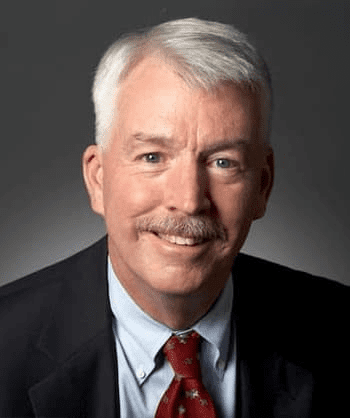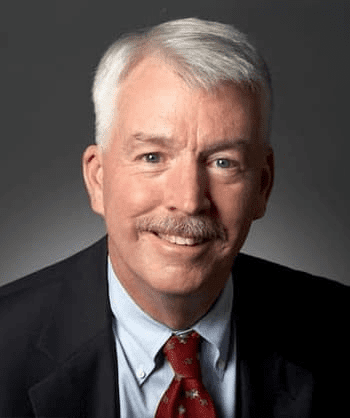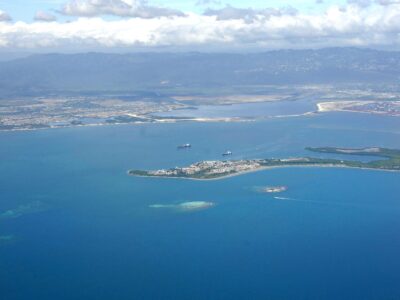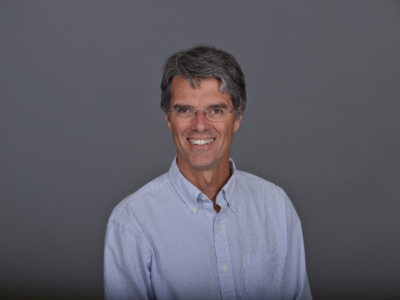
There is a matter-of-factness and direct sense of purpose with which Dr. Philip Landrigan speaks, whether discussing his hometown team the New England Patriots, a recent vaccine trial (in a former career he was a 20-year veteran of vaccine study at the Centers For Disease Control), or his passion for the study of a changing climate and how that affects people all over the world.
The pediatrician, public health physician, epidemiologist, and current Director of the Global Public Health Program and Global Pollution Observatory at the Boston College Schiller Institute for Integrated Science and Society wastes little time in getting to what drew him to his passion for a cleaner environment, one that was spurred early on in his work as a practicing pediatrician:
“So I got into this from two directions. The first has to do with the fact that I’m trained as a medical doctor, specifically as a pediatrician. And in my work, in my research work, I have done a lot of studying how toxic chemicals cause health problems in children. And as I got into this and read and wrote on the topic, I came to realize that an incredibly vulnerable time in human life is during the nine months of pregnancy.”
As he continues, linking toxic chemicals encountered in everyday life to certain birth defects, one can tell this is something he has spent a lifetime studying and takes exceedingly seriously:
“An infant in the womb, unborn children are much more vulnerable to toxic chemicals than adults, the chemical that would bounce off you or me could, if it hits the baby in the womb at the wrong moment in early development, causes brain damage, damage to the immune system, reproductive development and, and it was this concern for the health of unborn children that first brought me into contact with people in the Evangelical Environmental Network.”
Drawing parallels between toxicity and man-made contributions to pollution he says, “then, as I progressed in my work, and continued to write and publish on these topics, it became clear to me that the environmental pollution, toxic chemicals, and air pollution and climate change,really arise from the same root. And that root is at a kind of philosophical level, it’s our reckless exploitation of the world’s resources.”
As a Roman Catholic, Dr. Landrigan takes his responsibility to be a good steward of the earth seriously, believing it to be a divine purpose for every person of faith, and goes on to reference Pope Francis’ Encyclical Letter Laudato Si’ from 2015 which states in part: “Living our vocation to be protectors of God’s handiwork is essential to a life of virtue; it is not an optional or a secondary aspect of our Christian experience.”
As Dr. Landrigan explains “(this letter) calls on all of us to be good stewards.” And later, “he (Pope Francis) talks about the responsibility we have to care for the earth and to care for the poor among us. And he links those two very intimately. And a lot of people have described it as environmental teaching, which it is but it isn’t just that. It’s also teaching about social justice because he recognizes as we all do, that the negative effects of climate change and the negative effects of pollution fall by far the most heavily upon the poor.”
In response to a question about the future of environmental action, the former Navy reservist is succinct and direct:
“Hope is not a plan. It may be a religious virtue but it’s not a plan. Consequently, the Navy is deeply engaged in planning for the consequences of climate change. Specific examples: one, they’re putting together operational plans for the Arctic, the Arctic Ocean, they see Russia doing it and they’re doing the same. And number two, they recognize that a lot of their bases like Norfolk, Virginia, like San Diego, Newport, Rhode Island, are very vulnerable to rising sea levels. And they have plans in place to deal with that. So they’re taking this as real, and they’re doing it in an apolitical way. They’re just dealing with it as a reality of life.”
As the conversation winds down, Dr. Landrigan pivots back to his faith and condenses his point of view, which is nuanced and comes from a deep well of a lifetime of study, into a salient point for all believers:
“I think it’s great that faith communities are getting involved in these issues because I see it as a way to depoliticize these things. If faith communities are talking about the disproportionate impact of COVID on the poor, if faith communities are talking about climate change as the desecration of God’s creation, that’s going to reach people. Whether they’re in a red state or blue state, it doesn’t matter how they vote. They listen to their pastors, they listen to their preachers. With repetition, every Sunday the words sink in, and I think it’s the involvement of these communities in these big issues is ultimately a way that we’re going to see change happen in the world.”





 Copyright
2024
Root and Vine
Copyright
2024
Root and Vine